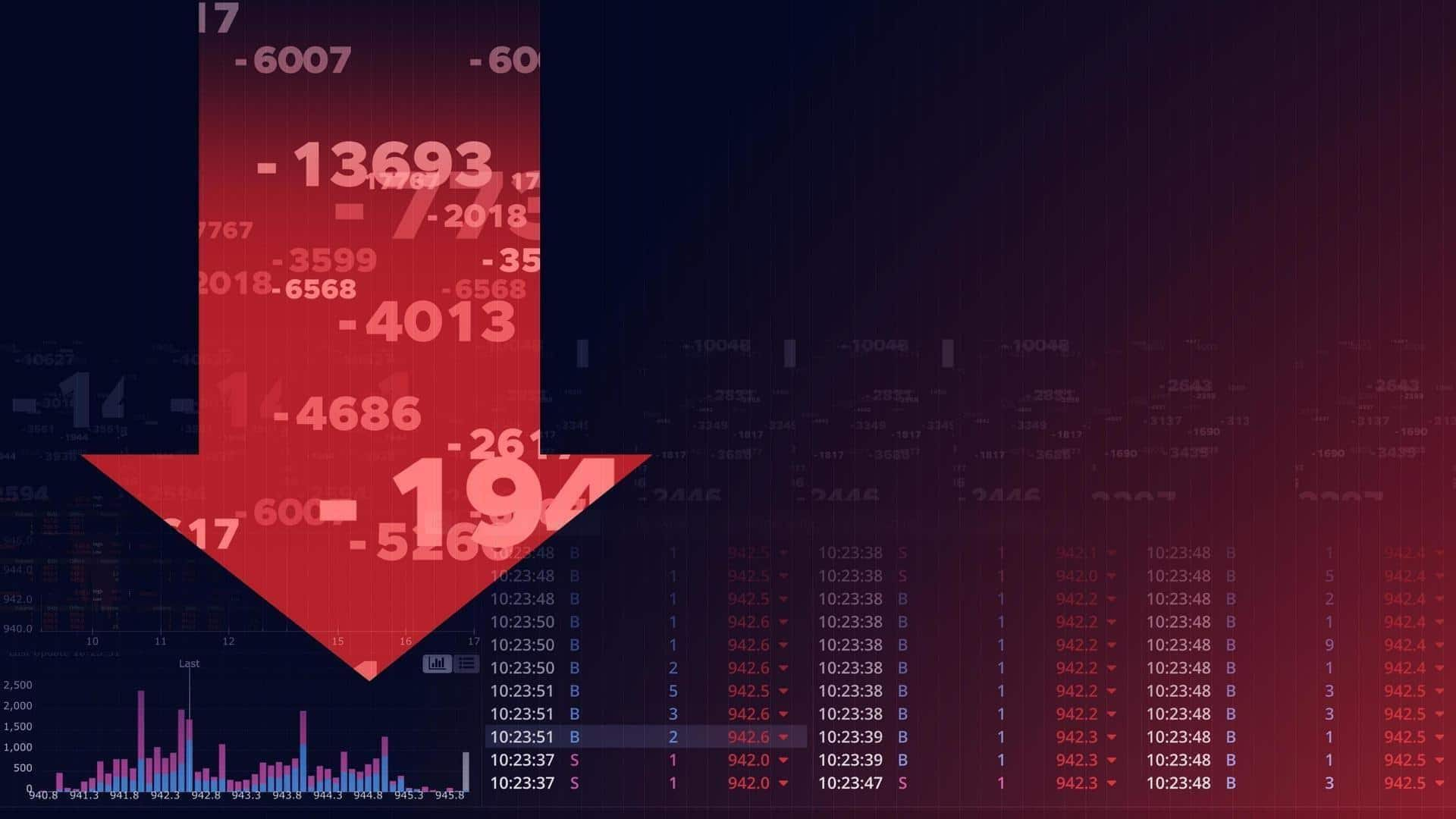
Sensex nosedives 1,400 points: Key reasons behind today's market crash
What's the story
The Indian stock market saw major swings on Monday, with the benchmark Sensex crashing over 1,400 points from its intraday high. The crash was triggered by a broad-based selloff. The Sensex opened at 81,926.99 and gained nearly 450 points to hit an intraday high of 82,137.77. It later erased all gains and crashed by 1,412 points to hit a low of 80,726.06.
Market impact
Nifty 50 and volatility index also affected
The Nifty 50 also followed a similar trend, opening at 25,084.10 and hitting an intraday high of 25,143 before slipping to a low of 24,694.35. Meanwhile, the volatility index India VIX surged over 6% during the session. Both Sensex and Nifty have been in the red for six straight sessions now, losing nearly 5% due to heavy selloffs from foreign portfolio investors (FPIs).
Trading in red
Almost all sectoral indices traded in red
Sensex was dragged down on Monday primarily by the heavyweights HDFC Bank, Reliance Industries, NTPC, Axis Bank, and Larsen & Toubro. NTPC suffered the steepest decline, falling up to 4%. Sector-wise, all sectors traded in the red except for Nifty IT, which gained 0.47%. Nifty Metal underperformed, slipping 2.44%, followed by Nifty Media, which fell over 3%. Metal stocks like National Aluminium, Hindalco, Adani Enterprises, Hindustan Zinc, Hindustan Copper, SAIL, and Welspun Corp saw declines ranging from 3% to 6%.
Investment shift
FPIs offload Indian equities, redirect capital to China
Data from NSDL shows that in the first three days of October itself, FPIs sold off Indian equities worth ₹27,142 crore. A large chunk of this capital is being diverted to China owing to its recent steps to revive its economy and financial markets. The shift is mainly propelled by attractive valuations in the Chinese market vis-a-vis premium valuations in India.
Market surge
Chinese markets witness significant gains
In the last few sessions, Chinese markets have posted huge gains. The Shanghai Composite Index has gained 21% in the last week, while the Hang Seng index has jumped over 15%. "The massive FPI selling is the primary factor behind the market's fall," said V K Vijayakumar, Chief Investment Strategist at Geojit Financial Services. He added that "big money is moving from India to China," calling it an abnormal case of 'sell India and buy China.'
Additional factors
Geopolitical tensions, election results contribute to market downturn
Apart from FPI selling, geopolitical tensions and exit poll results of the Haryana and J&K elections have also led to the market's poor performance. Manish Chowdhury from StoxBox observed that markets are under pressure as investor sentiment turned sour after these exit poll results. Anshul Jain from Lakshmishree Investment and Securities attributed Dalal Street's immediate weakness to these factors and Middle East tension due to the Israel-Iran war.
Market outlook
Experts optimistic about market's medium to long-term prospects
Despite the current downturn, experts remain optimistic about the market's medium to long-term prospects owing to India's strong economic growth and large domestic investor influx. They expect a bounce back in the near term as the market looks oversold. Chowdhury said "the markets have corrected sharply in the past week, and there should be a reversal in the short term." However, he warned that this reversal's sustainability would depend on outcomes of upcoming RBI policy meeting and corporate earnings.